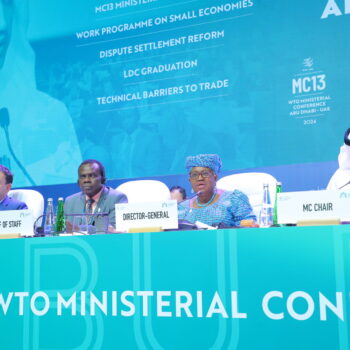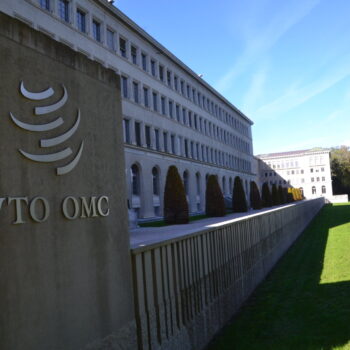Presidents Biden and Von der Leyen will be plunging into electoral mode in 2024, but still have time to bring home key transatlantic agreements to accelerate the clean transition. This would lock in the progress achieved during the last three years and help restore fracturing politics ahead of risky elections. The clean transition remains the best basis for a new consensus across the Atlantic that modernises our economies and revamps our international leadership.
Both leaders should focus on tangible outcomes:
- Standards for decarbonising industry via climate-aligned trade measures.
- Sustainable and secure supply chains for critical minerals.
- Cooperation on research and development in emerging clean technologies.
Our briefing summarises why these outcomes are crucial to the clean transition, and the current state of play. It shows how the EU and US can still achieve success in each area before election fever takes over next year.
Transatlantic cooperation on climate: unfinished business
Relaunching the transatlantic climate partnership will be a key legacy for both Biden and Von der Leyen. They have reinforced the G7’s climate leadership, established the Trade and Technology Council (TTC), revived the EU–US Energy Council, and built the basis for deep domestic transformations. The clean transition is now underway on both sides of the Atlantic and cannot be stopped.
However, several agreements still need to be wrapped up that would further accelerate the transition. Negotiations to decarbonise the steel and aluminium industries and build sustainable supply chains for critical minerals have stalled. Meanwhile, the window to achieve substantial progress on the shared goal of creating a transatlantic cleantech marketplace – announced at the last TTC – is closing quickly.
The recent EU–US Summit on 20 October was a great opportunity to reach agreements in all three areas. However, the wars in Ukraine and the Middle East took away most of the oxygen available to discuss longer term issues, such as clean economy cooperation.
Quick action can keep transatlantic relations and climate transition going strong
There is still time for the leaders to reach agreements on these three key issues. Doing so would help align their respective clean economy strategies, lowering the costs of the transition and increasing the opportunities for investments across the Atlantic. It would also consolidate their political coalitions ahead of elections next year.
At the next TTC, negotiating teams should focus on reaching agreements that allow for different approaches within a joint framework, and avoid unhelpful entrenchment on technical details. Failing to do so risks jeopardising the mutual trust built during the last three years and slowing down the transatlantic clean transition.


